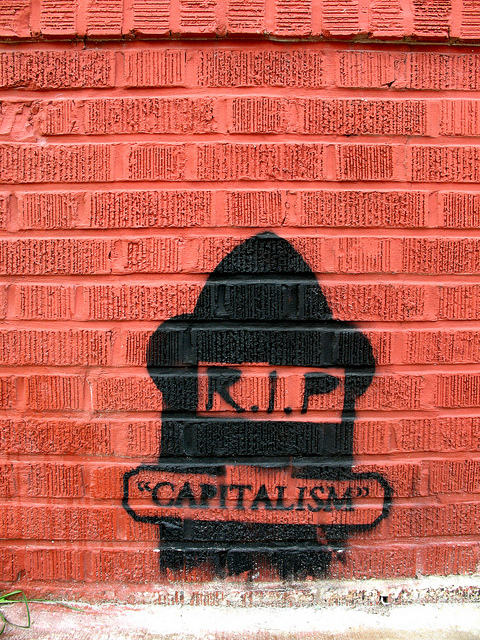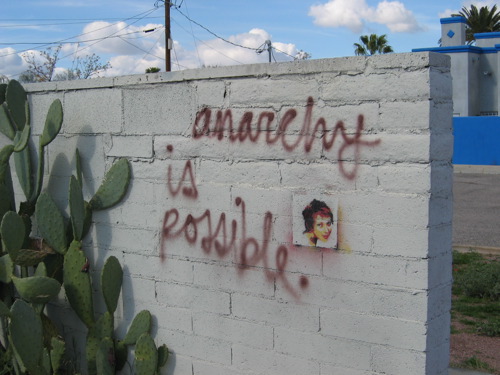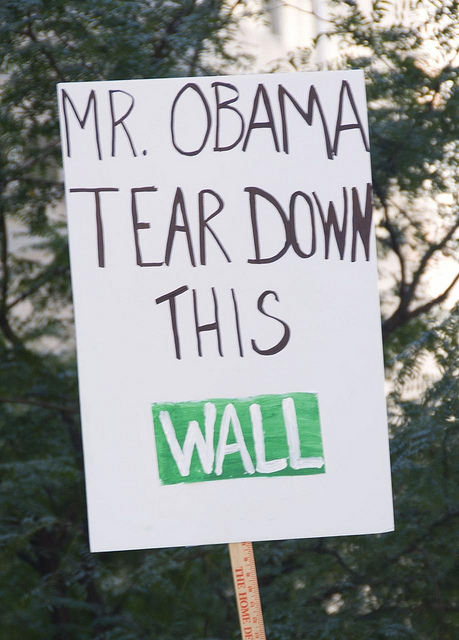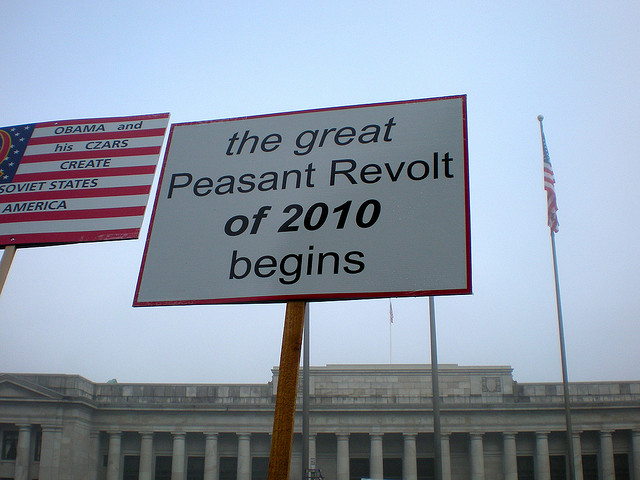|
|||||||||||||
The Philosopher Between the Capitalist and the Communist Chapter 33 : Hello, Benjamin By Punkerslut
"This shouldn't be like this," the Philosopher said, "I shouldn't be here. And I shouldn't be doing this. But I will break the rules of convention and tradition sooner than I break with justice and integrity. And you can't break from justice and integrity without breaking from Truth. So, maybe I really should be here. I'll figure that out later." "Hey, look!" Maurice, a demoted palace guard, tells another, "It's the Philosopher! There's a warrant out for his arrest! We should grab him!" "No," the Captain of the Guard said, "Look at where he is." "He's inside the temple talking to some priests, so what?" Maurice replied. "That means everything," the Captain said, "We're not allowed to enter those premises. The Babylonian government has an agreement with the church never to enter its premises or to deny it the right to give sanctuary to anyone. We can't go in there and get him." "Yeah, they give sanctuary to rapists and murderers," Maurice said, "All the more reason to ignore the mandate." "You're not in charge of deciding international law," the Captain said, "And if you want to be, I can let our superiors know how much you're willing to disobey orders." "He's not even talking to a Bishop or a Cardinal!" Maurice screamed, "I'm pretty sure he's talking to a Lay Priest, the lowest of the low on the ladder of authority and respect in the church's hierarchy." "That changes nothing," the Captain said, "We can't go in there. We can't violate the church's right to give sanctuary." Maurice's face turned sour, but finally relaxed into a regular expression. But inside the temple, another discussion was going on. "Why does the guardian of the universe need eyes and ears when that guardian exists everywhere at all times?" the Philosopher asked, "Isn't real protection of the soul and body guaranteed by a mind that accepts universal truth?" "You always come here to debate us about religion, like we're going to afford you the right to sanctuary," the lay priest replied, "Sure, I want to hear your arguments. But is that what you're arguing about this time? That god has messengers and speakers, because his own creatures cannot even communicate with such a being?" The Philosopher turned the frontal joust in the debate, "Do you really think you're listening to the people so you can carry their wishes to god, or that you're actually speaking to the people like you were god's own voice?" "God's own voice?" the lay priest asked, "You know how pure and beautiful it would --" "And what makes you think it's going to be a voice?" the Philosopher asked, "What makes you think it's going to sound like anything? What makes you think you could identify it?" "Which question should I answer first?" the lay priest pretended to be interested. "Answer any one of those questions, and you've answered them all," the Philosopher replied, "You couldn't satisfy human curiosity by only completing one corner of the triangle. Our minds would demand that we see the whole thing. Or, at the very least, that we would be able to imagine it." "Imagining a triangle isn't going to --" "Ah!" the Philosopher interrupts the lay priest again, "Who said it was a triangle and not a square? Are you really listening for the voice, or just to my voice?" "What?" the lay priest replied, confirming that the Philosopher would have a certain time frame of safety within the Babylonian temple, "Look, perhaps you should stay around so that we can explain to you how you're wrong. We know that you're an influential person, so having someone like you preaching the word as it really is meant to be understood might happen by god's grace. Make yourself at home in the temple. I'm going to speak with some other lay priests about how best to approach this." "Of course, of course," the Philosopher knew he had plenty of time, for his friend was going to confer with his co-workers, not his superiors. There was too much heart and head in the untrained initiates of any church for them to be any real threat to someone who has always been known as the Philosopher. Walking outside of the temple, the one individual in all of Babylon stood on stone pavements that had lasted the past one thousand years and would last the next one thousand years. "There he is, let's get him!" Maurice screamed to the captain of the guard. "You can't touch him as long as he is standing on one foot of property of the church," the Captain replied, "Not even just one foot, but even a square inch! That temple doesn't exist to you, and it won't ever. Don't try breaking in and arresting someone who you think might be the Philosopher." "I would never break the crown's orders," Maurice said, "But I am going to check around the temple to make sure that the Philosopher causes no trouble once he's outside the temple."
"Don't forget," the Captain said, "Every paved stone attached to that temple is the temporal domain of the church. If you think you spotted another drunk wino playing off of the sympathies of our dumb, local, lay priests, by all means, I want to see him thrown into the gutters of our prison and beaten into a respectable human being. But don't do something stupid like violate international concordats of the church which protect and enshrine the natural power of our people. They've hung people for that, soldiers, too, and they've done worse. Never doubt the holy wrath of god's appointed father to humanity, the head of the church." "Understood," Maurice replied, before disappearing into the marketplace that separated the rest of the city of his guard post At the corner of the temple's outdoor, stone pavements, one old man with a hood was looking off at the setting of the sun as its rays of light struggle to break through a thousand vines and leaves. Flocks of birds occasionally took off from the tree tops when disturbed by a caravan's noise or when threatened by a hunter's weapon. One lone mountain top carved the sun's circular shape into a near semicircle at a diagonal angle, but there was still enough light to find your way through the world, at least for the next few hours. "Philosopher!" Maurice screams standing beside the old man. The Philosopher turns, "Mmmm?" "Ha!" Maurice said, "I tricked you! I knew it was you, and now you confessed! Step out of that temple, and you're mine. As far as I'm concerned, the only way you can leave the church's sanctuary without being crucified is if you come out as a skeleton, and even then, we might make an exception to our crucifixion." "How are you so fast to make deductions?" the Philosopher asked, "You're a guard, not a Philosopher." "What?" "Ha, I tricked you!" the Philosopher said, "I wanted to know if you had the intelligence to catch someone like me if I left the temple. You don't. You can go away at any time now, I was just enjoying some natural forms of warmth and some natural scents of air." "You can't dismiss me!" Maurice screamed back, "You have no authority over me!" "Say," the Philosopher started to think again, "if someone out here on the street were interested in breaking into this well-guarded prison here, what you would a fella like you recommend?" "Ha, a troublemaker!" Maurice replied, "If you want to get in here badly enough, just steal some grapefruit from the marketplace. Just don't take too many, or they'll march you right past the prison and straight to the gallows." "Is that the law? I'm surprised that Hammurabi didn't add on any disclaimers, such as, 'Unless the offender is rich.'" "Why? You don't look too wealthy. And besides, what would the rich and powerful need to steal a single grape fruit for?" "Do you mean, as opposed to stealing entire nations at a time?" the Philosopher asked, "I'm certain that some of the cities that Hammurabi took had grapefruit in them. Most positively certain, wouldn't you be?" "You want me to change my politics, don't you?" Maurice said, "That's rich, coming from someone like you. I want you to be humbled before the Code of Hammurabi, and here you are talking Communist garbage to me, about how the poor and their grapefruit were somehow exploited out of them by some vicious ruler of some extremely successful, Capitalist empire." "My friend, you will see things that I could never see," the Philosopher said, "Thanks for giving me a new point of view." "You next and last point of view will be the edge of the guillotine's razor," Maurice replied. "You use guillotines here?" the Philosopher asked, "I thought that was something that only Communists did, and that you Capitalists preferred a hanging from the nearest tree or a death by firing squad, one or the other, so that whole crowds can see the event, rather than just an isolated few watching someone bent over being decapitated." "Every society has its spectacle, right?" Maurice replied. "And do you think it's rightfully so that it has to be that way?" the Philosopher asked. "And why wouldn't it?" Maurice said. "Because when you have a society, the spectacle and the spectator may actually be one and the same thing," the Philosopher said, "Thank you, Maurice. I've loved our conversation, but it's getting dark, and I should make sure they've made proper arrangements for me this time. Last time I was given sanctuary here, they made me sleep in the cellar, it was terrible, but that was before I was well-known. Take care of yourself." "And you, the same," the sourness in the face of Maurice not diminishing by a hair.
"Hey, who's that?" the Captain of the Guard points out a hooded man running in the mob near the marketplace. The Philosopher run by the group of soldiers outside of the prison holding Benjamin, and throws a grapefruit in the face of Maurice, screaming just before the pitch, "Hey, you gave me this idea!" The entire gang of soldiers guarding the front post chased after him, and after running a quick circle with the pursuers always in chase, the Philosopher had arrived back to the entrance of an unguarded prison entrance, let himself in, and locked the door behind him. The Captain of the Guard in Babylon had been locked out of his own fortress. After walking several steps through the hallways of the prison, the Philosopher turned and met an armed soldier wearing the blue sashes of Babylonian Military tradition on his shoulder. "Philosopher!" he screamed, "I know you." The old man squinted at the young trooper, "Gabriel? Is that you? I haven't seen you in years. So, my bribe reached you, I hope?" "The price of doing business is the price of doing business," Gabriel said, "Follow me, I can take you where you need to go. And just so you know, I'm not taking any of the cut. There is no profit for me. Every part of your bribe is going to other soldiers in this guardhouse to suddenly disappear when they would be otherwise obligated to interrupt and apprehend." "Obligated to interrupt and apprehend?" the Philosopher said, "You're about to say that you haven't been made worse by being in the military, but I hear those words, and I doubt it." "Not every soldier is Maurice," Gabriel replied, "But not every soldier is Roz, either." "Perhaps not," the Philosopher replied, "Do you remember what I tried to teach you?" "Teach me?" Gabriel said, "I always thought of you as just an old friend, but if I learned anything from after talking to you, it was to rely on myself to get to where I need to be. And if you want to know where to go, you'll take this next hallway on the left. The prisoner you want is at the end. There's no way you can miss him." "Is this --" the Philosopher started to ask. "Yes, you read the signs correctly," Gabriel said, "This is our detention hall for citizens accused of capital crimes. They may be condemned to death, they may not, we're not entirely certain. But every soldier should have a right to know what their job entails." "I was about to say," the Philosopher said, "The same thing about a citizen's right to know what it is that you do." "Those Anarchists really converted you, didn't they?" Gabriel smiled widely, "To think, the Philosopher was finally influenced by someone instead of influencing someone! Sure, I may have changed, friend, but, I think, so have you. Now go get what you want. I'll make sure you're safe." He tossed a key to the Philosopher before turning around and disappearing. A quiet walk down a hallway lined with faces of misery and suffering marked his journey to the final cell. "You can't escape your past," the Philosopher thought to himself, "It's always part of you, and you'll run into it at the least expected moments. And when it comes, you probably won't really know if it'll save you or sacrifice you." "Save you and sacrifice you at the same time," one prisoner chants back, letting the Philosopher know that some of his own thoughts were unconsciously slipping out between his lips in the form of words, "That's what you can account to the past, and nothing more." "Who are you?" the Philosopher asked. "I'm the one, the last surviving human being being to be pulled out of that wreck of a mine in Anarchia," the prisoner said, "That was me. And now I'm here. I'll let your imagination fill the in-between for yourself."
Finally, he was there, at the end of the prison hallway, staring between the thick iron bars, looking at a man using clothing as a type of blanket around his head and body, trying to sleep instead of being awake to the consciousness of his suffering. "Hello, Benjamin." Ben looks up quickly and sees a hooded man outside of his cell. "I see that you are definitely the son of Capitalism," the Philosopher said, "How is the inheritance?" "What are you doing here?" Ben asked in between his rags and makeshift blankets, "Are you here to help me?" "Do you know what you want this time?" "Liberty," Ben replied quietly, "And yes, I am certain. At no other point in my life have I been quite so certain when responding to that question." "There are several things you must do to be free. 1. Escape. 2..... nevermind," the Philosopher said, "There is only one thing you need to do to be free." Using the key from his friend, he unlatched the jail cell, and with a loud creaking of rusted iron against rusted iron, he pulled open the barrier holding Benjamin from his freedom. "Are you ready?" "I saw you throwing a grapefruit at one of the guards and running," Benjamin came out of the cell, "How did you do that?" "You know, just because I'm the philosopher, everyone thinks that I'm not going to be good at anything physical, as though I'm totally devoid of wanting good health in body," the Philosopher replied, as the pair walked down through the prison hall. "Ah, so, you are the Philosopher of the mind because you hold the Truth," Benjamin said, "And what great, fantastic legend explains your ability to run?" "I stretch in the morning," his friend said. "Yeah, but, like, wasn't there a god, like Zeus, who must've trained you to be that fast?" Ben asked. "The two hours every morning I do on my thighs and calves is what gave me that power," the Philosopher said, "Zeus must be jealous." The two then passed the one survivor from the mine. "Oh, hell," the Philosopher stopped and turned to the prisoner's cell, unlatching the lock and pulling open the great big door, "You should follow me, at least for a little bit, if you want to live." "Thank you," she said, lifting up the matted clothing she had wrapped around her head while imprisoned, her red lips the one bright thing in the gray room, "And if you're going to free me, you should know my name. I'm Clair." "That's a short name," Ben said, "I'm curious about your full name?" "Ben, this is the one survivor from that destroyed mine where you and Emma decided to break up Anarchia," the Philosopher said, "You owe her answers to her questions more than she owes you answers to your questions." "It's all right, there is nothing to hide," she said, "Clair is actually short for Voltaire." The Philosopher squinted his eyes and looked to her, "But in a woman's case, I guess that would be Voltairine?" "You are the Philosopher," she said, "I'm certain that you know." "Stay close to us," he said, "I will get you anywhere you need to go. I have the certainty and agreement of the best law-breakers on this side of Babylon, and I'm not talking about the clergy of the Church." At the direction of Gabriel and an unknown guard, the entourage of the Philosopher, Benjamin, and Voltairine were directed toward a hidden path behind one of the large mortar stones in the breakroom of those employed at the prison. "Head straight outwards," Gabriel said, "It'll look like you're walking into nothing, but you'll be outside and at safety once you reach the end." "Thank you, Gabriel," the Philosopher said, "You're like an angel." "You put a lot of trust on me," Gabriel smiled, "Now follow the darkness that you might be brought to the light." The Philosopher, Benjamin, and Voltairine disappeared into those dark, uncertain caverns, the cracked and blistering stones turning into nothing once any source of light had disappeared. "We're lost, it's that simple," Benjamin said. "You're lost," the Philosopher said, "I have directions, the same as yours, and I'm not lost." "Here, on the ceiling," Voltairine said as she lifted up her arms, "There's a wooden hatch. Only a few flecks of light pierce through it." "What are you even looking at?" Benjamin asked. "Just follow the sound of her voice," the Philosopher said. "Got it!" the sound of an iron latch flicking open echoes through the caves with a brightness of outdoor light, along with endless conversation in the distance. They were in the marketplace. "Fresh grapefruit! Get your fresh grapefruit!" a salesman in the market is selling his goods widely and openly. For a moment, he sees the few prisoners escaping through the hatch, and then immediately pretends not to see them, "You want grapefruit? It better be fresh grapefruit, and you won't get it anywhere but here!" Crawling on their hands and knees, the three made their way to the edge of the stand. "Guess one of us has to be first," the Philosopher whispered to the others as he plopped his head up like he was an ordinary salesman, "Grapefruit! It's the best fruit available!" "Get outta here, you're killing my business," the merchant winked, as the three finally disappeared into that madness and chaos that is a market mob, making their way to some sort of safety. "I need to depart from you now," Voltairine said, "I came to Babylon, and now I know that I have to leave. I've visited the home of Communism and the home of Capitalism. Neither of them have anything for me, and I must free myself from these wicked empires." "I can guarantee your safety," the Philosopher said, "Transport is awaiting us if we keep traveling West toward the Mediterranean." "You have already provided for my safety," Voltairine said, "This is the point where I take my freedom into my own hands. I must pursue my own course. I thank you from the depths of my heart for saving me. I wish you the best in your journeys." "And you, as well," the Philosopher smiled back at the woman as she disappeared back into the market crowds. "Philosopher, why did you save me?" Benjamin asked, "Before, there were a thousand kings willing to hire you for your services. Now the world is going to find out that you tricked a king that had befriended you. Not a single one will accept your job application now." "My application to a job I would never accept?" the Philosopher replied, "So, I guess nothing's really changed, then?" He got up and stretched, "Except, now that you mention it, I might flex a little bit more in the morning -- I'm not as limber as I remember myself to be. At least, if the king's a little less interested in my services, then maybe the world can forget about me a little more, and I can fall back into the reclusion that is devotion to truth." "So, you really have no reason to save me?" "Perhaps truth is always the servant to goodness?" "I'll humbly accept that answer." "Don't be humble. Just accept it, live through it, and never be afraid of your own intellect's boldness," the Philosopher responded.
|







